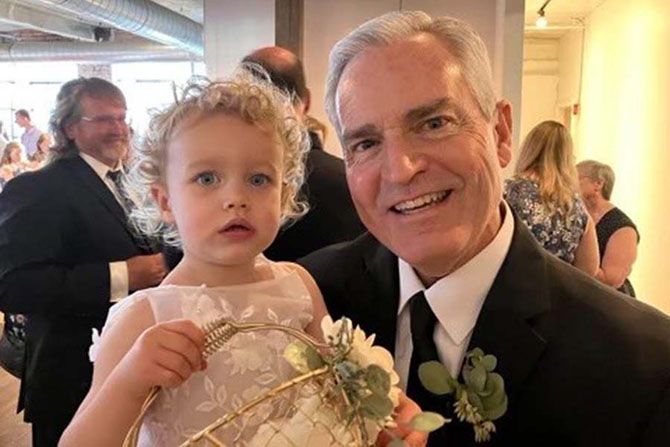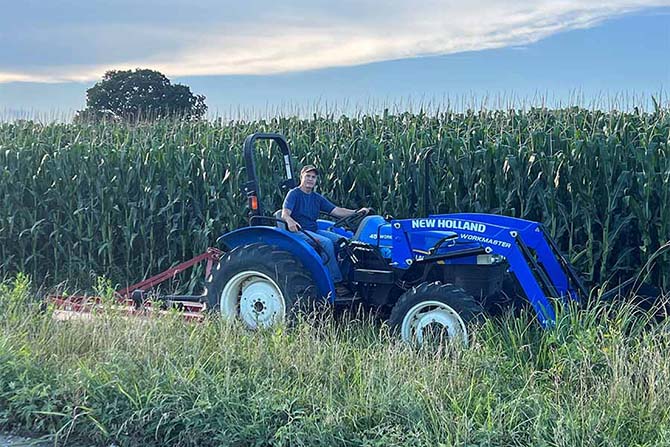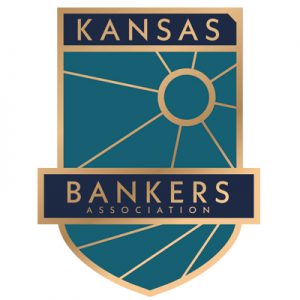Mark Schifferdecker’s roots in community banking run deep. On Jan. 5, 1923, Mark’s great-grandfather, Martin C. Schifferdecker, was elected to The Farmers’ and Miners’ State Bank of Girard’s (now GNBank, N.A.) board of directors. Later that year, Martin’s son, W. Earl Schifferdecker, began working as a bookkeeper at the bank after graduating from Pittsburg Business College. After a few years, Earl was promoted to President of the bank, and he successfully guided the small bank through the Great Depression.
In 1956, Earl’s son Martin Schifferdecker joined his father in the bank after graduating from Kansas State Teachers College and became the bank’s President in 1974 after Earl passed away. Mark joined his father at the bank in 1995, and became President & CEO in 2003.
In addition to leading GNBank, Mark has been active on other bank-related boards, which has been helpful in expanding his leadership skills and knowledge of the industry. Mark has served on the boards of Bankers’ Bank of Kansas, Federal Reserve Bank of Kansas City and FHLBank Topeka.
KBA had the opportunity to spend some time with Mark recently to talk about what’s important to him and his thoughts on the future of community banking.
You come from a banking family. Was joining the family bank always the career plan?
I consider myself blessed to be a third-generation community banker. I believe there is no better career, so yes, I always knew that the banking industry and the family bank was where I would eventually end up.
I also come from a farming background, and I believe that experience really helped mold me to be a better banker since GNBank has always been predominately an ag bank. Farming actually paid for my college. I worked for a local farmer throughout high school and college. The farmer let me utilize his equipment to farm my dad’s ground which paid for my tuition, housing and other expenses. It was a really great way to learn how to work and I gained respect for the ag industry.
Where did you go to college?
I went to William Jewell College in Liberty, Missouri, where I earned degrees in Accounting, Business Management and Computer Science. I’m also a graduate of the ABA Stonier Graduate School of Banking.
And after college?
Well, I earned my CPA and spent 10 years with KPMG, Kansas City, where I worked a lot with audits and taxes and spent a great deal of time working with banks. KPMG was a great training ground. In 1995, my wife Nancy, who is also a CPA, and I moved back to Girard, and I joined the bank. I became the President & CEO of the Bank in 2003 and the Chairman of the Board in 2015, when my dad, Martin, passed away.
I was very fortunate that I was able to work side by side with my dad for 20 years. I learned so much about banking and life from him. He loved being a community banker and worked up until the day he died at the age of 80.




Let’s talk about mentors you’ve had over your career.
As mentioned earlier, my most impactful mentor was my dad. From a very young age, he made sure that I worked in every area of the bank — from running the proof machine to repossessing cars. It gave me a great perspective. My dad was a very genuine and generous leader. I learned ethics from my dad. He had the utmost integrity in everything he did. A lot of our customers remember my dad helping them when no one else would. He took his job as a community banker very seriously.
Also, the local farmer that I worked for throughout high school and college was a person that made his mark on my life — he was just a “Salt of the Earth” kind of guy. He was a hard worker and taught me the value of hard work, how to be organized, and to be prepared for anything. He was also a solid Christian influence in my life.
In addition, there were several partners at KPMG that took me under their wing, so to speak, who had an impact on my career and life.
I have been fortunate to have had a lot of great mentors.
What’s the best day for you as a community banker?
The best days are the ones where I get to see our customers succeed. We work with farmers, ranchers, and small businesses across many local communities here in Kansas and southeastern Colorado, and there are many of our customers that come in and start off with, “If it wasn’t for your dad/grandpa, I/my business would not be where it is today …” I hope to have just as many people say the same thing about me because that is what community banking is all about — making a difference in the lives of the people and communities we serve by helping them achieve their financial dreams and goals.
Over the years, our bank has grown, mostly through acquisition. We started with one bank, and today we have 15 locations. Integrating new banks and staff into our existing culture and the GNBank family is also something that I really enjoy.
One of the upsides to being a community banker is that no two days are the same. We get to be a small part of every business we help, and that is also very exciting and rewarding.
If you could reduce your career into just a few success points, what would they be?
A few years ago, our bank’s team developed what we call our four-pillar pledge, which I believe pretty much sums up what I believe any community banker should strive for to be successful.
- Treat others ethically: I believe it’s essential to do things the right way, to be honest and forthright.
- Be adaptable: I believe that when you take the approach of “how can we help make this work,” great things can be accomplished.
- Be customer-focused: the customer is king; it’s why we exist.
- Invest our time and resources in our communities: it’s important to give back and to be a good corporate citizen; we support 4H, county fairs, little league teams and essentially every other community event. Also, our bank’s management team and I serve on as many local not-for-profit boards as we can.
What’s the future of community banking?
I believe the future of our industry is bright. The community banking industry is unique; the U.S. is the only country in the world that has such a vast and diverse banking system. I firmly believe that community banks are essential because they are the economic engines of local economies in most cities and towns across the country.
Furthermore, community banks assist in creating jobs by helping businesses grow and prosper, which results in the opportunity for many young people to move back into these communities to raise their families. Many Kansas communities have seen jobs disappear, leading to a “brain drain” of sorts. As towns grow economically, they can attract talent back home.
The downside to community banking is the very onerous regulatory burden we face. That’s a challenge.
I believe that most customers prefer to deal with community banks that have a track record in the community. There’s trust and a relationship.
Tell us a little bit about your family?
My wife Nancy and I were high school sweethearts, and we just recently celebrated our 35th wedding anniversary. We have two daughters, Sara and Bethany, two son-in-laws, Spencer and Jaysen, and a two-year-old granddaughter, Norah. Sara, Spencer and Norah live in Los Angeles. Bethany and Jaysen have spent the last few years overseas working with a nonprofit organization and have just recently moved to Los Angeles. Nancy and I are blessed with a wonderful family.
What do you do in your spare time?
My wife and I love babysitting our granddaughter Norah. We enjoy traveling and have been all over the world. We like to do things together outdoors, such as hiking and biking, and I also enjoy running. In addition, Nancy manages her family’s farm. We are both very involved in our local church.







